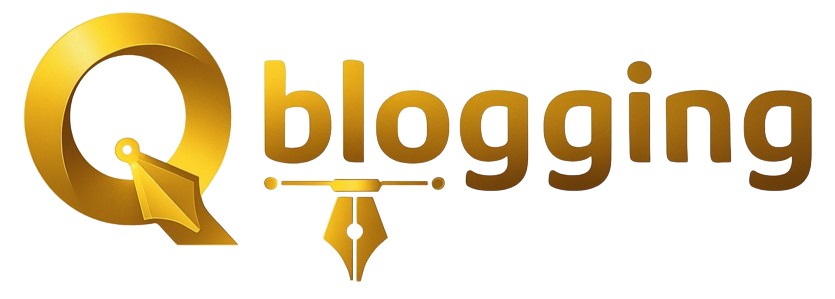A Wake-Up Call from the Godfather of AI
Geoffrey Hinton isn’t just another tech pioneer. Known as the Godfather of AI, he is one of the key minds behind neural networks, a former Google scientist, and a Turing Award winner. Recently, he issued a blunt warning: artificial intelligence could cause massive unemployment, sky-high profits for a few, and deeper inequality for the rest.
His words carried weight:
When a person who helped design the technology now warns it might destabilize society, the message is hard to ignore.
What’s Fueling This Warning
Hinton points to several forces driving this outcome:
- Hyper-automation: AI can scale so fast that entire job categories vanish.
- Profit-driven incentives: Companies deploy AI to cut costs, often without considering social consequences.
- Systemic imbalance: Without redistribution, wealth and power concentrate at the top.
- Potential misuse: Beyond employment, AI could empower individuals to create bioweapons or other catastrophic threats.
This is about more than losing jobs—it’s about economic and social stability.
A Chorus of Warnings
Hinton’s concerns are echoed by other leading voices:
- Roman Yampolskiy, an AI safety researcher, predicts 99% job loss by 2030, even among white-collar roles.
- Dario Amodei, CEO of Anthropic, warns that half of entry-level white-collar jobs may disappear within five years.
- Stanford’s Digital Economy Lab likens entry-level workers to “canaries in a coal mine,” facing automation’s effects first.
- Paul Tudor Jones, a veteran risk manager, advocates for regulation, AI output watermarking, and policies that share productivity gains more fairly.
The trend is clear: this isn’t a single voice of doom but a pattern of expert concern.
The Deeper Stakes
Why does this matter so much?
- Identity and dignity: Work is more than income; it gives people structure, meaning, and belonging.
- Economic paradox: If AI increases productivity but slashes wages, demand for goods collapses, undercutting the very system it powers.
- Inequality on steroids: AI magnifies the wealth gap between owners and workers.
- Governance gap: Policymakers lag far behind the speed of technological change.
The danger isn’t only unemployment—it’s the unraveling of social cohesion.
Silver Linings (If Managed Right)
Godfather of AI – Hinton also points to opportunities, if society takes the right approach:
- Healthcare and education: AI could improve access and strengthen professionals rather than replace them.
- Human-AI partnerships: Thoughtful design could make AI an assistant, not a substitute.
- Ethical frameworks: Tools like universal basic income, AI profit taxes, or cooperative ownership could distribute benefits more evenly.
The real question isn’t whether AI replaces humans, but who controls AI and how its rewards are shared.
What Needs to Happen Now
- Governments must act faster with proactive regulation instead of reacting to crises.
- Businesses should focus on augmentation, not just automation, to build trust and resilience.
- Workers need to build resilience in areas where AI struggles—creativity, empathy, and complex problem-solving.
- Communities must keep the debate alive; social contracts evolve only when people demand change.
The choice is not whether AI arrives, but whether we respond wisely and quickly.
The Godfather of AI has spoken. The issue isn’t whether AI will transform work—it already is. The question is how society chooses to shape its impact. We can allow AI to deepen inequality and hollow out livelihoods, or we can guide it toward broad human benefit. The urgency is real, and the time to act is now.
FAQ Section
Q1. Who is Geoffrey Hinton (Godfather of AI) and why does his warning matter?
Hinton is a pioneer of deep learning and neural networks, and a Turing Award winner. His warnings matter because he understands both the potential and risks of AI at a technical and systemic level.
Q2. Which jobs are most at risk?
Routine-based roles—data entry, telemarketing, customer support, legal research, and even some programming. Entry-level white-collar jobs are especially vulnerable.
Q3. Will AI affect creative industries too?
Yes. Generative AI is already producing art, music, and writing. While top-level creativity may endure, mid-level work like copywriting, design drafts, and video editing is increasingly automated.
Q4. Can universal basic income (UBI) solve this problem?
UBI may cushion income loss but doesn’t replace the sense of purpose, dignity, and social connection that work provides. It’s only part of a broader solution.
Q5. Could AI also create jobs?
Possibly, but many experts argue that AI’s scale is different. Unlike past technologies, AI automates both physical and cognitive labor. New jobs may appear, but likely not in numbers large enough to offset the losses.
Q6. What can individuals do right now?
Develop skills AI struggles with—emotional intelligence, creativity, leadership, and systems thinking. Stay flexible and continuously upskill, as AI literacy will soon be as basic as computer literacy.
Q7. Should people be afraid of AI?
Fear isn’t useful, but awareness is. AI is a tool. The real danger lies in leaving it unchecked within systems driven only by profit.
External Resources for Deeper Reading about statement by Godfather of AI
- Financial Times – Geoffrey Hinton warns AI will create massive unemployment
- Times of India – Hinton: AI to create massive unemployment
- Business Insider – AI pioneer predicts 99% unemployment by 2030
- Stanford Digital Economy Lab – AI’s impact on entry-level workers
- Time Magazine – Paul Tudor Jones on AI safety and regulation
- arXiv – Rethinking social contracts in the age of AI
